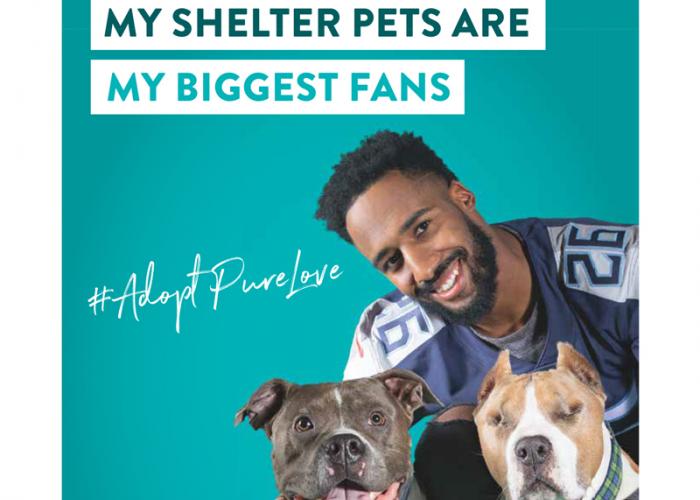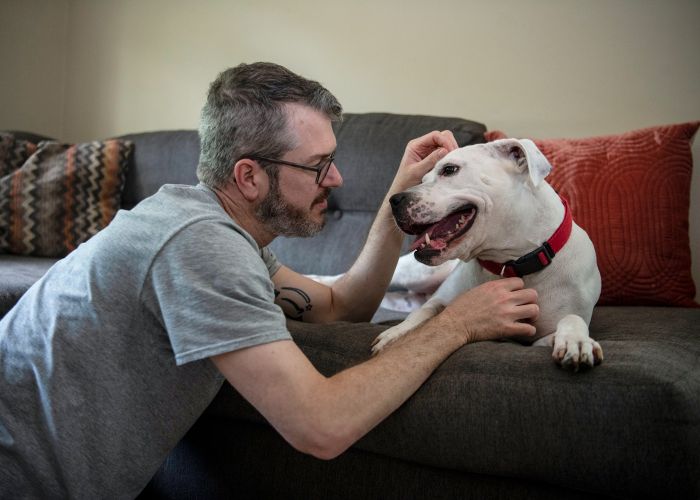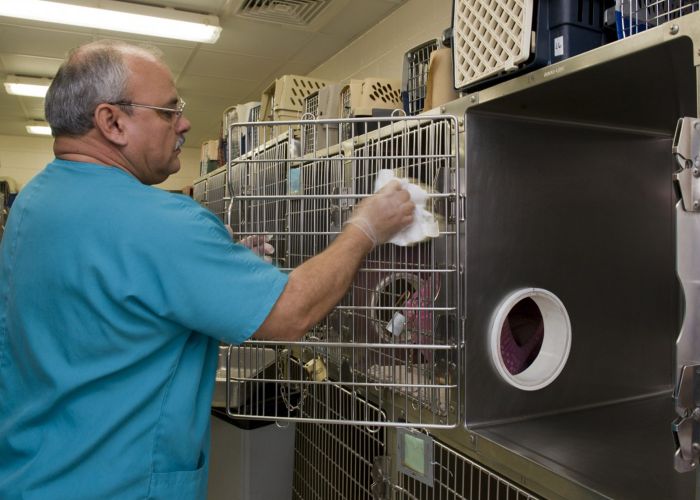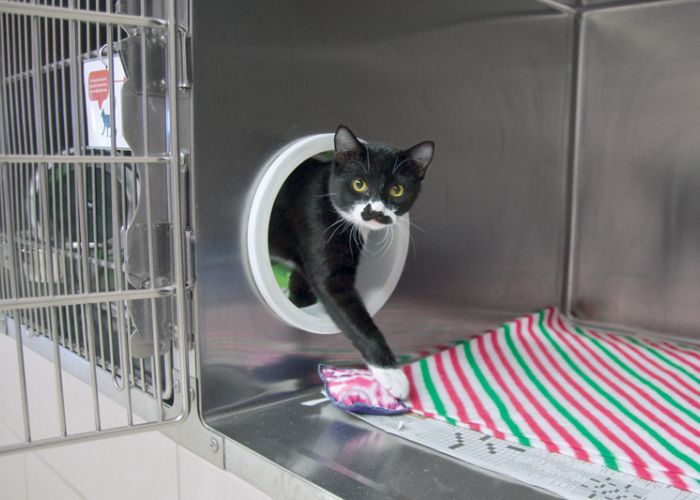Small animals come with big obstacles for shelters
Grappling with an influx of guinea pigs and other small mammals, shelters look for solutions
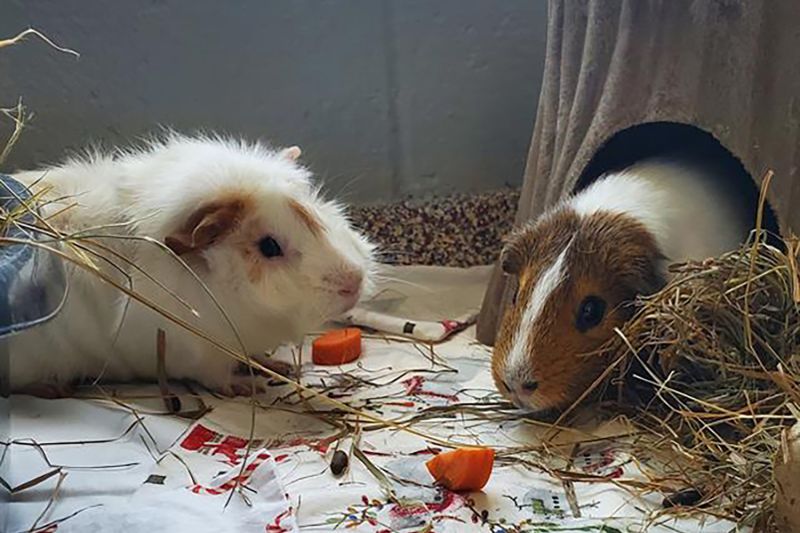
In the most populous city in the U.S., the Animal Care Centers of NYC is one of the few animal organizations that accepts guinea pigs. That didn’t pose too much of a hurdle in the past when guinea pig intakes averaged fewer than 350 a year. But in 2021, the numbers began to rise, and by the end of the year, the shelter had taken in 709 guinea pigs. The following year the number was over 750.
The ACC was already “stretched pretty thin” around this time, says Katy Hansen, director of marketing and communications at the ACC. It didn’t have the infrastructure to care for so many small animals and had to spend $20,000 on a guinea pig “tower” to house the animals. And because most of the guinea pigs came to the shelter unsterilized, staff members needed to drive them to and from a local veterinary clinic for spay/neuter surgeries, which added up in time and costs.
When Voters For Animals Rights, a Brooklyn-based advocacy group, heard how guinea pig intakes were impacting the shelter, it began leading efforts alongside the ACC, Humane World for Animals and the New York State Animal Protection Federation on a legislative solution.
“Every other shelter that I’ve seen is struggling. They’re struggling with regular animals, but these exotics and small animals are … becoming a problem across the nation.”
—Katy Hansen, Animal Care Centers of NYC
Many of the surrendered guinea pigs were very young, suggesting that owners had recently acquired them. Of those whose owners reported the source of their pet, 61% came from pet stores.
“The goal of this legislation was to solve the root cause of the problem, and that is the cheap sale of high-maintenance animals,” says Brian Shapiro, HSUS New York state director.
In April 2023, the New York City Council passed an ordinance prohibiting the sale of guinea pigs in pet stores (the animals can still be adopted out). It was a big win, says Hansen, but the problem isn’t isolated to New York City. “Every other shelter that I’ve seen is struggling. They’re struggling with regular animals, but these exotics and small animals are … becoming a problem across the nation.”
The “others”
Cats and dogs make up the majority of intakes at animal shelters, and many shelters only accept these two species. But a growing number of shelters also take in other pets, usually called “smalls” or “others” in sheltering lingo (in veterinary medicine, they’re called “exotics”).
The number and types of "other" animals entering shelters’ doors vary widely. With four adoption centers, including its Nevins Farm facility, the MSPCA in Massachusetts takes in a larger variety than most shelters. In December, it had guinea pigs, hamsters, rabbits, rats, mice, ferrets, hedgehogs, chinchillas, ducks, doves and parakeets for adoption, as well as horses, sheep, goats, chickens and potbellied pigs.
Dakin Humane Society in Springfield, Massachusetts, accepts around 18 species of small mammals and birds, which make up nearly 20% of the shelter’s intakes. “We’re not going out and looking for them,” says director of operations Karina King. “We’re just serving the needs that exist in our community. And anyone who is not taking smalls, the need is there in the community whether they’re coming to you or not.”
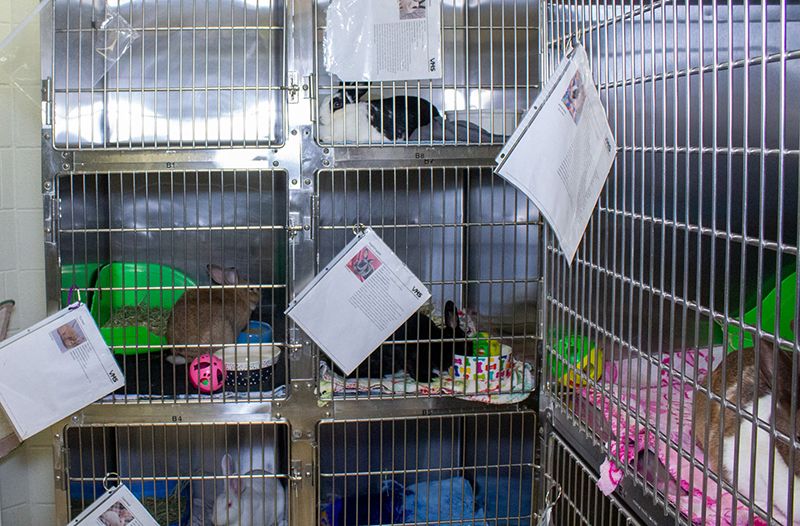
Data from the American Veterinary Medical Association support her view. There are around 30 million exotic pets in the U.S. (excluding fish), according to the AVMA 2017-2018 Pet Ownership and Demographics Sourcebook. Exotic pet ownership in the U.S. has never been greater, the AVMA says, and research shows young people are more interested in exotic pets than older generations, suggesting the number may continue to grow.
“Because there’s an increase in exotic pet ownership, there is an increase in exotic pet surrender, which means shelters are having to adapt on the fly,” says Dr. Emily MacArthur, a staff veterinarian at the Humane Rescue Alliance in Washington, D.C.
But even shelters long accustomed to caring for small animals are struggling with the recent rise in intakes, particularly of guinea pigs. Shelters in California, Massachusetts, Washington, D.C., Ohio, Connecticut, Colorado, Hawai’i and even the United Kingdom have all reported an increase in guinea pig intakes.
“We’re definitely riding a wave of owner-surrender guinea pigs,” says Jamie Lima, barn manager at the SPCA Monterey County in California.
“Because there’s an increase in exotic pet ownership, there is an increase in exotic pet surrender, which means shelters are having to adapt on the fly."
—Dr. Emily MacArthur, Humane Rescue Alliance
Theresa Gary, director of operations at the Connecticut Humane Society, says her shelter has experienced a “severe increase” in rabbit intakes in addition to a rise in guinea pigs. She says other New England shelters and rescues have also been seeing a spike in rabbit numbers over the past five years. Mike Keiley, director of adoption centers and programs at the MSPCA, believes guinea pigs and rabbits probably arrive at shelters in large numbers due to their longer life spans compared to other small mammals.
And since small animals have high reproductive rates, “it’s not like you get one rat in,” says Kendall Paul, CEO at Vanderburgh Humane Society in Evansville, Indiana. “You’re getting in 20 rats at a time.”
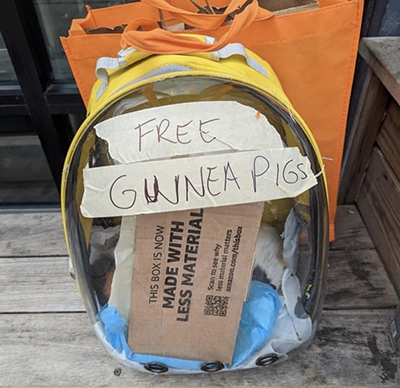
Care challenges
The reasons for the recent surge in small animal surrenders aren’t clear, but one theory is that people turned to acquiring small pets during the beginning of the COVID-19 pandemic when the availability of cats and dogs in shelters declined. A few years later, people may be struggling to care for their animals, the theory goes.
Sold in large numbers by pet stores, guinea pigs, rabbits, hamsters and other small animals are distinctly adorable but also harder to care for (and less cuddly) than their labels of “pocket pets” or “starter pets” may lead people to believe. For many species, it can also be difficult for a layperson to accurately determine their gender. As a result, people can unwittingly take home a pregnant animal or discover the hard way that the same-sex pair they purchased at the pet store are actually a male and a female.
Once in a home, small animals require specific housing and social, dietary and even atmospheric conditions to mimic life in their natural environments. Otherwise, “they won’t eat, they won’t shed, they won’t poop, they won’t do basic living things,” says MacArthur.
On top of all of this, small-pet owners struggle with the same socioeconomic issues as cat and dog owners, such as the rising costs of goods and lack of access to pet care resources and pet-inclusive housing. Veterinarians who are experienced in treating small animals can be hard to find, and pet support services and animal rehoming resources typically focus on cats and dogs.
“There’s a lot of barriers to care for exotic pets,” says Lindsay Hamrick, HSUS director of shelter outreach and engagement. “Take the barriers that cat and dog owners face and then multiply them by 100, and that’s what you’re dealing with.”
Some owners, feeling left without options or mistakenly assuming their animal will thrive in the wild, release their small pet outdoors. In Boston, there was a 56% increase in abandoned and stray guinea pigs between 2021 and 2022, according to the MSPCA.
Meanwhile, as shelters grapple with high intakes of cats and dogs, simply finding appropriate shelter space for small animals can be a herculean task. Cold-blooded reptiles rely on their environment to regulate their body temperatures and can develop potentially fatal metabolic bone disease if they’re not given enough ultraviolet light. Prey species should be housed separately from cats and dogs, and some sheltering experts recommend keeping guinea pigs separate from rabbits (who can transmit an upper respiratory disease that can be fatal for guinea pigs).
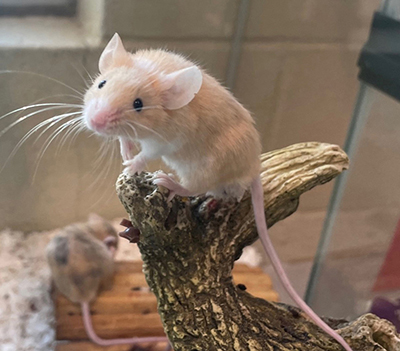
Small animals also require special supplies, expertise and time, and many shelters struggle to balance meeting their needs with the daily demands of operating a shelter. “We do our best,” MacArthur says. “We do what we can with the space we have and the number of animals we have. A parrot needs attention. We can’t give them the attention they need. … A rat likes to play and have time outside the cage every day, and bunnies love to free roam, and ours are in kennels.”
Another challenge shelters face is training staff and volunteers on small animal care. “A lot of people have never worked with an exotic pet before, so we don’t have that base level knowledge,” says MacArthur. And animal care staff need to be especially watchful as prey species hide signs of illness. When a dog or cat doesn’t eat for a day, for example, it’s typically not an emergency, and staff will simply make a note of it for the medical team, says MacArthur. But “a bunny who doesn’t eat for a day could be dying.”
The search for solutions
During Keiley’s almost 30 years in sheltering, he’s seen a lot of progress in how the field views small animals. “My hope is that more and more shelters will start to recognize that this is a big need in the community. And those who might not be engaged right now in small animals may need to be,” he says.
Yet finding the resources to provide a safety net for small animals can seem daunting, MacArthur says. “We are drowning in cats and dogs anyways, so trying to expand further is kind of doing a disservice to the animals you already signed up to care for.” At the same time, she adds, small animals “are already here, they’re already needing help.”
Some shelters are finding at least a partial solution to their small animal overload by appealing to the public. While messaging about adopting cats and dogs from shelters has taken off in recent decades, many people still don’t know that shelters have small animals available for adoption. To change this, shelters are using social media and creative promotions to boost awareness of their small adoptables.
“My hope is that more and more shelters will start to recognize that this is a big need in the community. And those who might not be engaged right now in small animals may need to be.”
—Mike Keiley, MSPCA
During a recent adoption event for mice, the MSPCA gave the first 75 adopters a starter kit, which included a tank, bedding, bottles, bowls and huts. (Free supplies can attract adopters, ensure the animal has a humane setup and increase access to resources for pet owners, Paul notes.)
The MSPCA already has low adoption fees for small animals, so fee-waived adoption events are not as much about taking away a monetary barrier as they’re about asking the community for help, Keiley says.
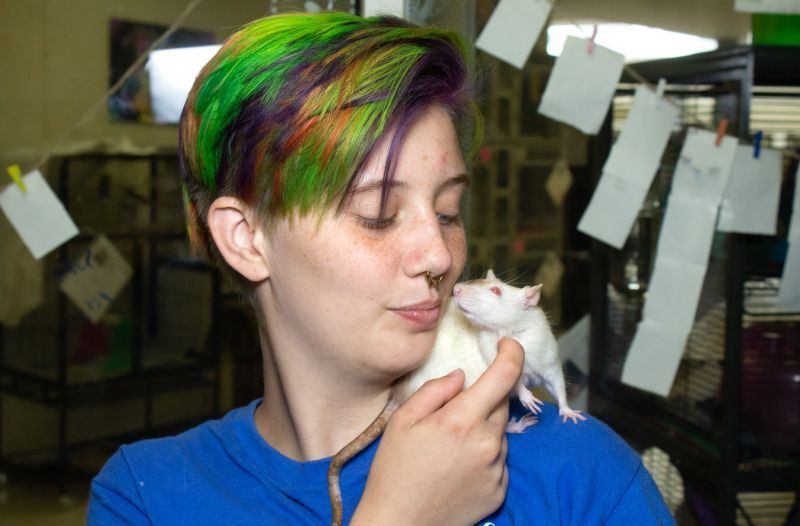
Still, in many regions, the base of potential adopters interested in owning a small pet is much smaller than it is for cats and dogs, sheltering experts say. At the MSPCA, small animals take between double and triple the amount of time to find homes compared to dogs and cats.
For some shelters, the mismatch between supply and demand has forced some tough choices. Dakin Humane Society has historically been open admissions for all the species they accept, but during the past few years they’ve only taken in guinea pigs under emergency situations and have reduced their intake of rabbits. “We were getting 60 to 80 requests for guinea pig surrenders per month and adopting out about a dozen per month,” says King. “I can’t make that math work.”
Organizations are having to make decisions “about how to get ahead of this problem, and I think it’s reasonable to shut down intake when you’re overwhelmed,” Keiley says.
The MSPCA is still accepting small animals while trying to fight through the obstacles. Taking that safety net away from the community, Keiley says, could “cause other issues like an increase in abandonment that would end up being more problematic than struggling through capacity issues on our end.”
When his shelter took in over 500 mice from a single home in September, they were able to transfer around 150 to other New England shelters. But if they’d taken in 500-plus guinea pigs instead, he doubts they would have been able to find any shelters able to help.
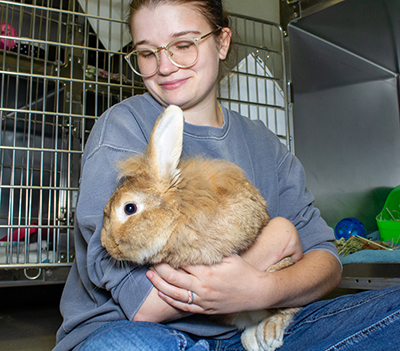
As the influx of small animals into shelters continues, some animal advocacy organizations are looking for legislative fixes. Over the past decade, New York City, Chicago, San Francisco and several other cities have banned pet store sales of rabbits. In 2018, California became the first state to ban pet stores from selling cats, dogs and rabbits. And in 2022, New York state passed a similar law. Now momentum is starting to build on behalf of guinea pigs.
Since the NYC ban on pet store sales of guinea pigs went into effect, the Animal Care Centers is seeing a slow but steady decline in intakes. Hansen hopes her city’s success will inspire other organizations to pursue similar legislation and notes that the NYC bill passed with a supermajority of support. “It’s such a nonpartisan issue,” she says.
In December, after lobbying by the MSPCA and other animal advocacy organizations, the Boston City Council voted unanimously to add guinea pigs to an existing ban on retail sales of cats, dogs and rabbits and to instead encourage adoption partnerships between pet stores and shelters or rescue groups. With that vote, Boston became the fourth municipality in the state to prohibit pet store sales of guinea pigs.
Several months before the city council took action, Keiley didn’t foresee an end to the large number of guinea pigs coming into his shelter. Legislative changes, he said, may provide the “only relief we can expect in the future.” Now with the revised ordinance scheduled to take effect this spring, Keiley and his team are hopeful that relief is in sight.


